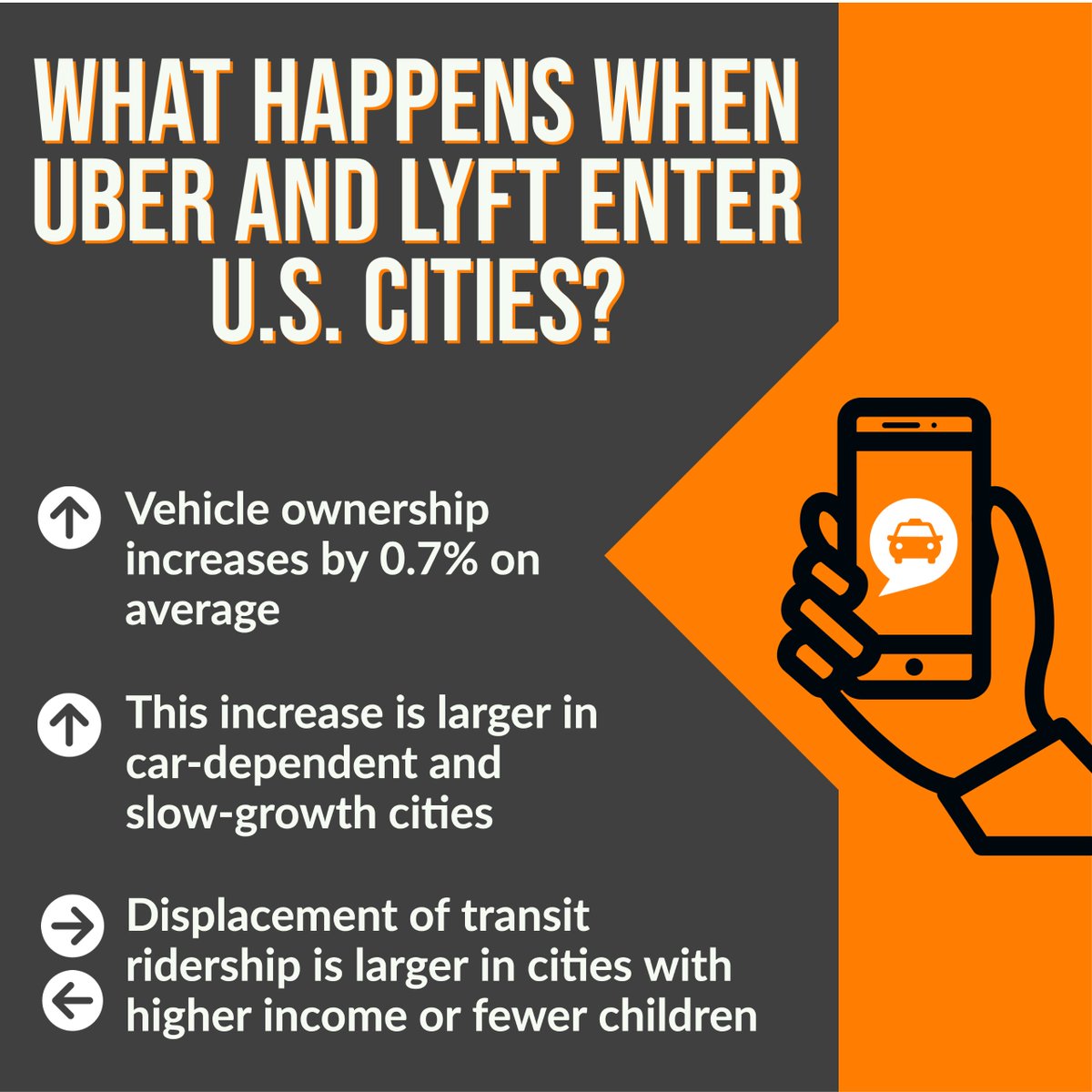
Hot off the press:
Q: What changes when Uber and Lyft enter US cities?
A: Depends on the type of city.
Thread: 1/8
cell.com/iscience/fullt… @CostaSamaras @inesliaz @alehenao10 @CMUVEG @CMU_EPP #VEGFindings
Q: What changes when Uber and Lyft enter US cities?
A: Depends on the type of city.
Thread: 1/8
cell.com/iscience/fullt… @CostaSamaras @inesliaz @alehenao10 @CMUVEG @CMU_EPP #VEGFindings

@CostaSamaras @inesliaz @alehenao10 @CMUVEG @CMU_EPP In our new paper in @iScience_CP, we leverage the fact that Uber/Lyft entered 224 US cities by 2017 with staggered timing to isolate changes caused by Uber/Lyft from other changes over time and other differences among cities. 2/8 

@CostaSamaras @inesliaz @alehenao10 @CMUVEG @CMU_EPP @iScience_CP On average, people buy *more* cars when Uber/Lyft arrive, especially in car-dependent and slow-growth cities, like St. Louis, Pittsburgh and Cincinnati. 3/8 

@CostaSamaras @inesliaz @alehenao10 @CMUVEG @CMU_EPP @iScience_CP Potential interpretation: in car-dependent cities (cities with high vehicle ownership per capita), riders use Uber/Lyft for specific services (e.g.: trips to bar) but still keep their personal vehicles for other travel. Uber/Lyft drivers purchase more vehicles. 4/8
@CostaSamaras @inesliaz @alehenao10 @CMUVEG @CMU_EPP @iScience_CP Potential interpretation: in slow-growth cities, vehicle registrations outpace population growth, while in fast-growing cities some new residents with access to Uber/Lyft never buy that first car. 5/8
@CostaSamaras @inesliaz @alehenao10 @CMUVEG @CMU_EPP @iScience_CP Uber and Lyft also displace transit ridership more in cities with higher income and fewer children, like New York, Los Angeles and Chicago. Makes sense: travelers with cash and without car seats more willing to pay for fast, point-to-point travel. 6/8 

@CostaSamaras @inesliaz @alehenao10 @CMUVEG @CMU_EPP @iScience_CP Importantly, we can’t claim exactly what Uber/Lyft’s effect is in any particular city, but we can identify trends across cities that are statistically significant and robust to a battery of tests. Uber/Lyft affect different kinds of cities differently. 7/8
@CostaSamaras @inesliaz @alehenao10 @CMUVEG @CMU_EPP @iScience_CP Raises questions about effects on environment and traffic, but more vehicle ownership doesn’t necessarily mean vehicles are driven more. We’re working on estimating emissions and traffic implications and will have more to say on that soon. 8/8
@CostaSamaras @inesliaz @alehenao10 @CMUVEG @CMU_EPP @iScience_CP Should have said on average people *own* more cars... Not clear whether they *buy* more cars or hold on to the ones they have longer (or both).
• • •
Missing some Tweet in this thread? You can try to
force a refresh


